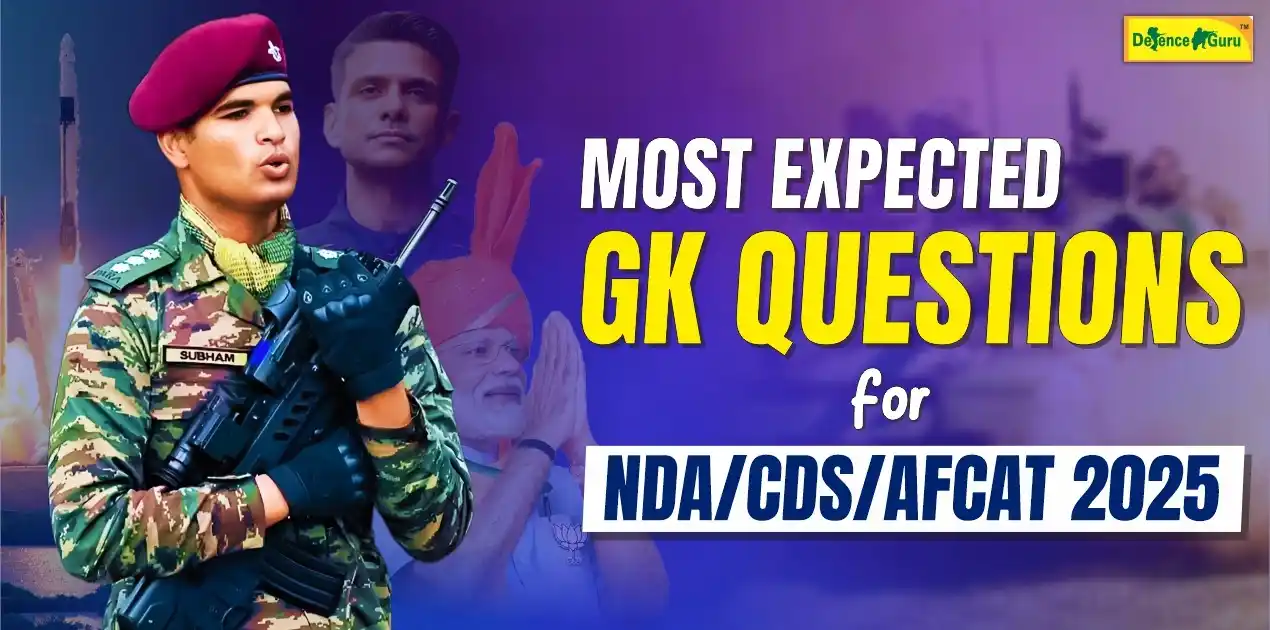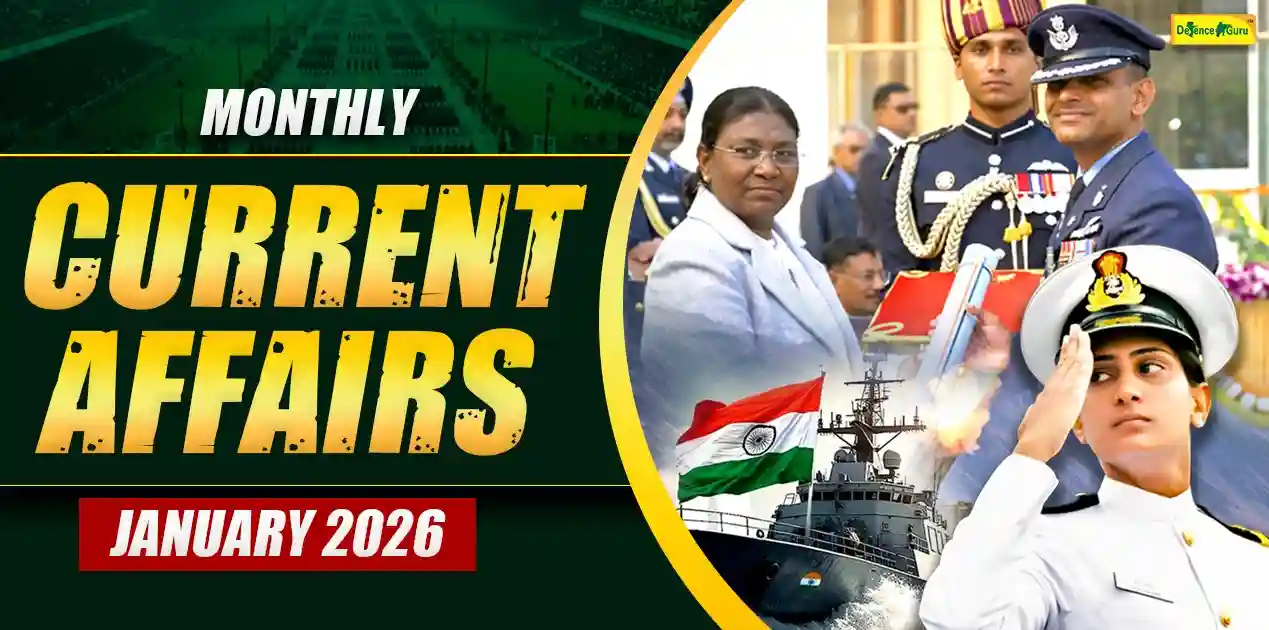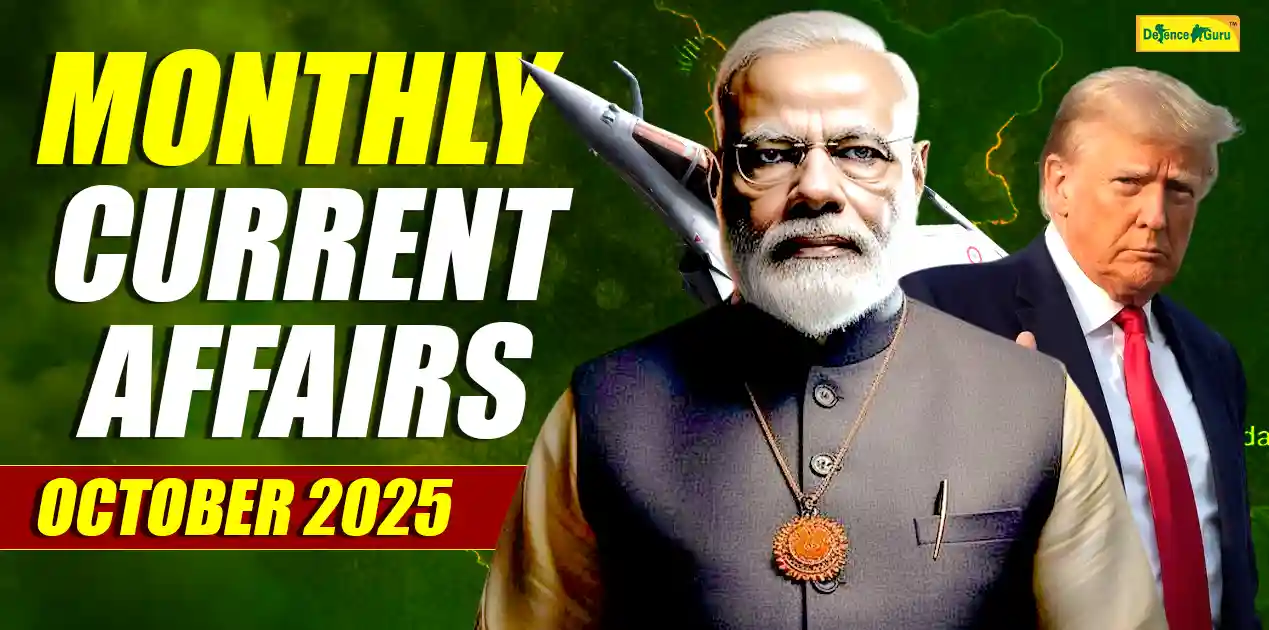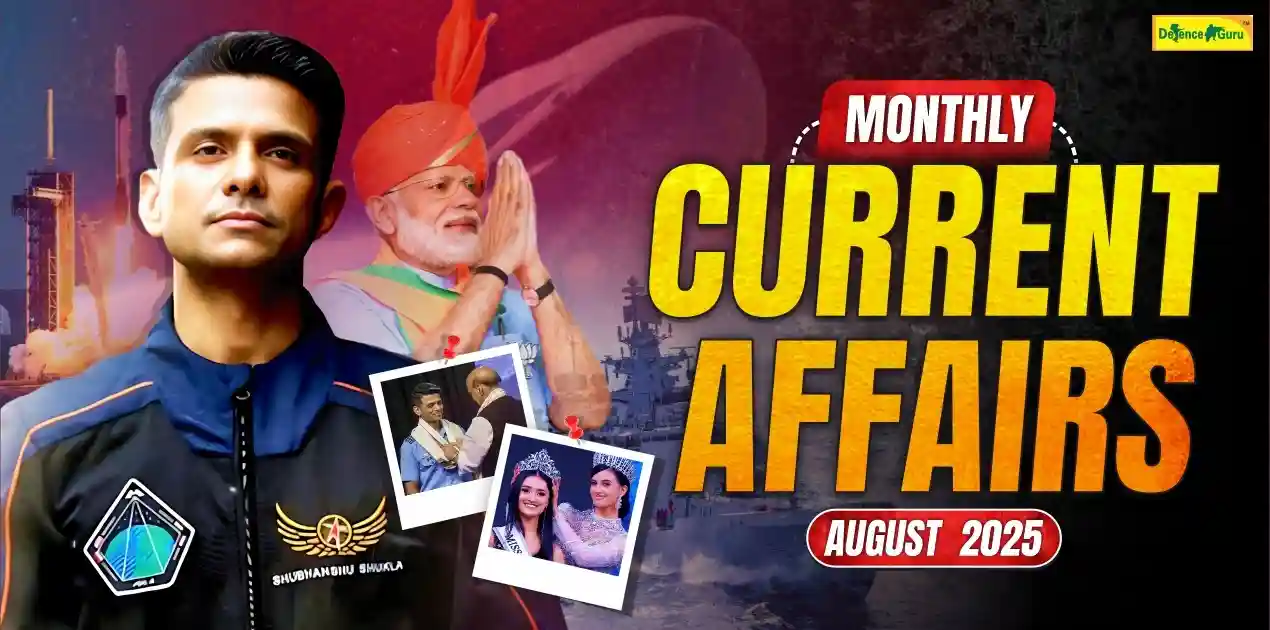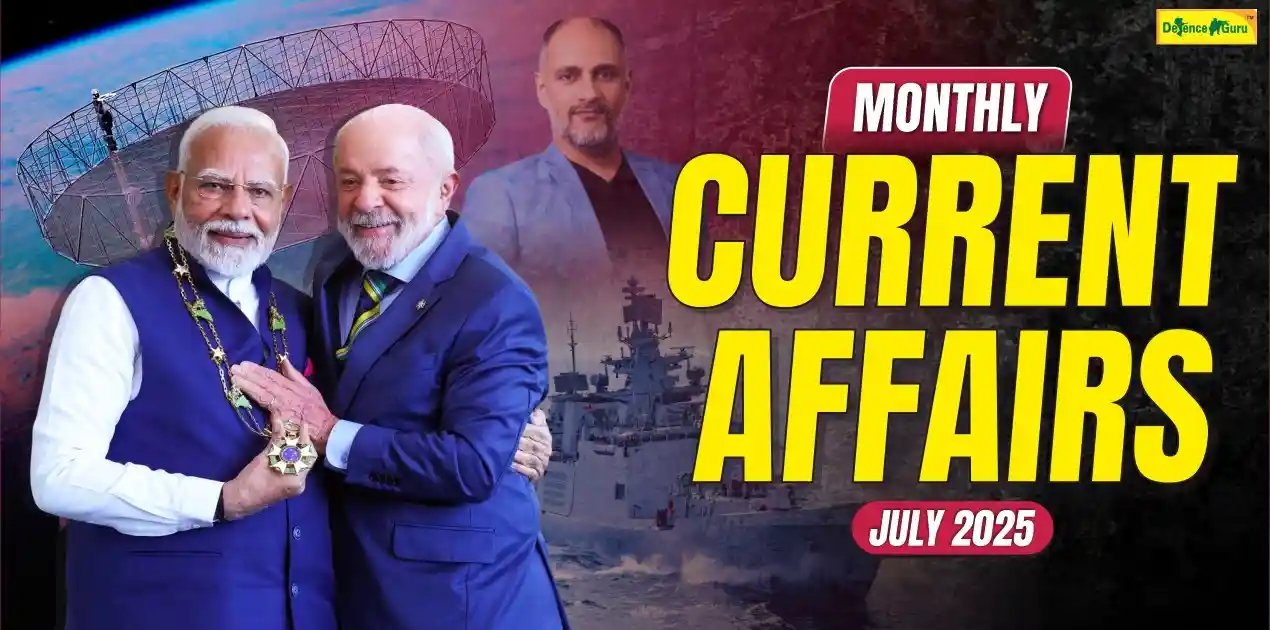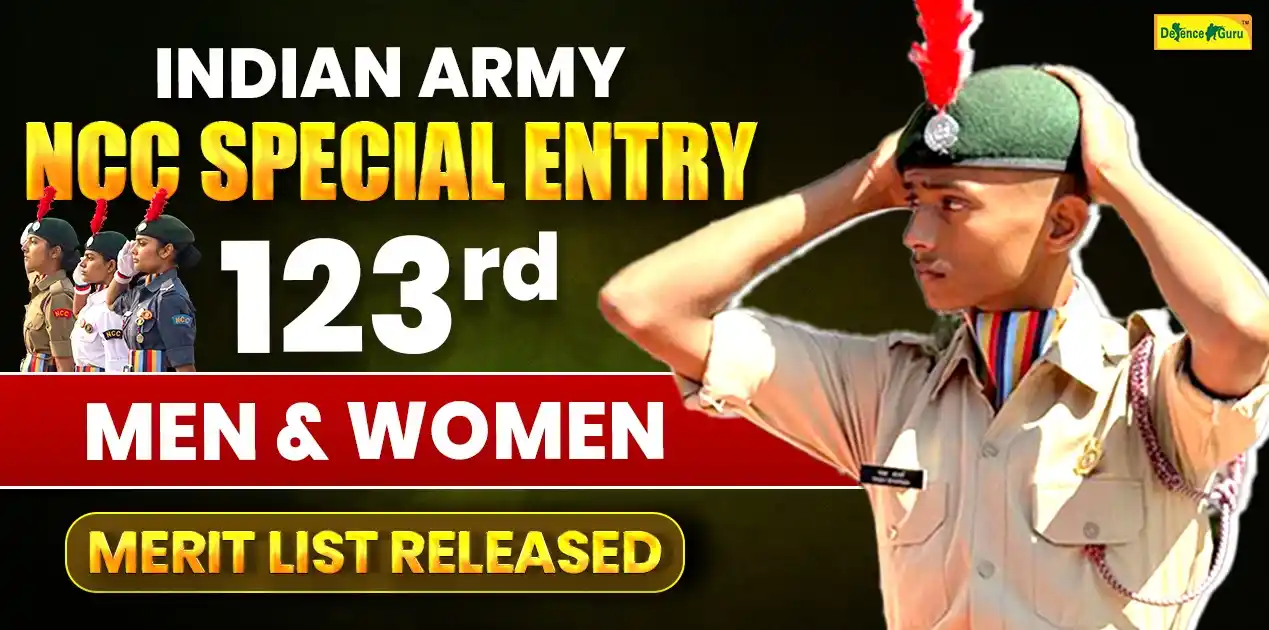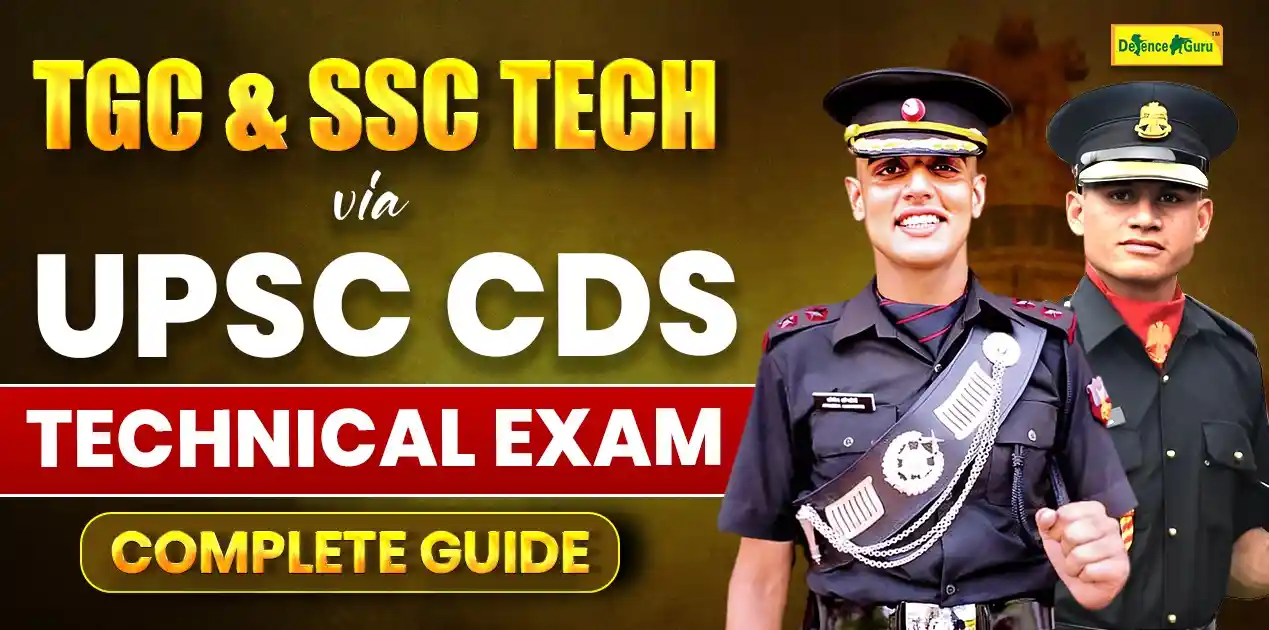General knowledge is among the most crucial and highly scoring components in defence admission exams such as NDA, CDS, and AFCAT. As competition is mounting and patterns in exams are changing, students require a laser-sharp strategy to prepare for the GK section efficiently. This blog discusses 2025, along with subject-wise division, previous years question trend analysis, and intelligent preparation tips.
Importance of GK in Defence Exams
In NDA, CDS, GK is a significant part of paper 2 – general ability test [gat], whereas in AFCAT, GK is included in the general awareness section. It not only evaluates the current awareness of a candidate but also their understanding of static subjects such as history, polity, geography, science, and defence affairs. Performing well in GK can greatly enhance your overall merit rank and enhance your personalities of selection in written exams.
Expected GK Questions – Based on Previous Year Trends
Let’s begin with a subject-wise list of the most expected GK questions and areas that are frequently repeated in the NDA/CDS/AFCAT exams:
1. History
History questions in NDA/CDS are mostly related to the Indian freedom struggle, ancient civilization, medieval conquerors, and contemporary India. Some of the major expected questions are:
• Who established the Indian National Congress and in what year?
• What was the primary result of the Non-Cooperation Movement?
• Major battles such as the Battle of Plassey, the Battle of Panipat, and what followed.
• Contributions of personalities such as Mahatma Gandhi, Subhash Chandra Bose, and Sardar Patel.
• Mauryan and Gupta Dynasties – governance, economy, and cultural advancements.
These are generally questions that assess concept understanding as opposed to memorization. Emphasize timelines, key figures, and turning point events.
2. Geography
In Geography, both Indian and physical geography are significant. Questions tend to be factual, map, or conceptual in nature. Areas that are generally expected are:
• Structure of the Earth – layers, volcanoes, earthquakes.
• Indian rivers – dams (e.g., Hirakud, Bhakra Nangal), origin, tributaries.
• Locations and major mountain ranges.
• Climatic regions and monsoon system in India.
• Natural vegetation and soils of India.
• Significant national parks and biosphere reserves.
Example of a sample expected question: Which river has its origin in the Amarkantak Plateau?
3. Polity
Indian Polity continues to be one of the most significant scoring topics in defence examinations. Questions are simple but demand conceptual clarity. Topics of emphasis:
• Features of the Indian Constitution.
• Fundamental Rights and Duties.
• Directive Principles of State Policy (DPSPs).
• Parliament – Lok Sabha & Rajya Sabha powers, sessions, and bills.
• President, Prime Minister, Governor – their powers and roles.
• Constitutional Amendments and Articles.
Expected question: Which Article of the Constitution addresses Emergency provisions?
4. Science and Technology
Standard questions from Physics, Chemistry, Biology, and recent advancements in science are often asked. While NDA inquiries from NCERT fundamentals, CDS and AFCAT can incorporate applied concepts and recent advancements.
• Physics: Laws of motion, gravitation, electricity, light.
• Chemistry: Chemical reactions, the periodic table, acids & bases.
• Biology: Human body systems, plant biology, diseases, vaccines.
• Technology: ISRO missions, DRDO, Artificial Intelligence, 5G, nuclear energy.
Expected question: What is the aim of the Chandrayaan-3 mission carried out by ISRO?
5. Defence and Military Affairs
Defence-related questions are the heart of AFCAT and often appear in NDA and CDS too. These questions reflect the candidate’s interest and awareness in armed forces.
- Recent defence exercises (e.g., Yudh Abhyas, Garuda, Malabar).
- Defence appointments (e.g., CDS, Chiefs of Army, Navy, and Air Force).
- Defence equipment: fighter jets (e.g., Rafale, Tejas), tanks (e.g., Arjun), ships, and submarines.
- Defence organizations: DRDO, HAL, BEL, and their latest projects.
Expected question: Which aircraft is considered India’s first indigenously built fighter jet?
6. Current Affairs (Last 6–8 Months)
Current affairs are a dynamic section. It requires regular reading of newspapers, monthly compilations, and revision of important events. Key areas:
- Government schemes (e.g., PM Gati Shakti, Viksit Bharat 2047, Skill India Digital).
- Important national and international summits and conferences.
- Awards & honours – Padma Awards, Gallantry Awards.
- Sports events – Olympics, Asian Games, National Games.
- Appointments, obituaries, rankings, and reports.
Expected question: Who won the Bharat Ratna award in 2025?
Subject-Wise Preparation Tips
History & Polity
Go through the NCERT Class 6–12 books and the Lucent GK. Take rapid notes and study timelines and important events periodically. Concentrate more on the Indian freedom struggle and constitution-related themes.
Geography
Make use of maps to grasp river systems, mountains, and states. Study state-wise soil types, vegetation, and national parks.
Science & Tech
Adhere to the NCERT basics of Biology, Physics, and Chemistry. For updates on technology, consult PIB releases and the defence ministry updates.
Current Affairs
Read one monthly magazine such as Pratiyogita Darpan or Centurion's GK Digest. Practice facts every week and read PIB, AIR, and reliable news sources.
Bonus: Model Questions for Practice
- Who was the Viceroy of India during the Quit India Movement?
- Which is the highest battlefield in the world?
- Name the first Chief of Defence Staff of India.
- What is the full form of GAGAN, and its purpose?
- Which Article of the Indian Constitution deals with Fundamental Rights?
- Name the first woman officer to get a permanent commission in the Indian Navy.
- What is the capital of Nagaland?
- Name the river on which the Sardar Sarovar Dam is built.
- Which Indian state has the highest forest cover?
- Who is the current Chief of Air Staff (as of July 2025)?
Additional Tips to Prepare for GS
The following are some intelligent tips to get the best out of your GS score:
1.70:30 Rules: Allocate 70% of time to static GK (History, Polity, Geo, and Science) and 30% to current affairs.
2. Short Notes: For each subject, maintain a formula, fact, year, and revision notebook.
3. Weekly Revision: Don't keep piling new facts. Revise whatever you have read weekly.
4. Mock Tests are the Way: Practice sectional tests of GS every 3–4 days to inculcate speed and accuracy.
5. Stay on Top of Relatable YouTube Channels: Centurion Defence Academy's YouTube channel consistently uploads short GK updates and mock quizzes.
6. One-Liner Facts: Prepare "1000 Most Expected GK One Liners" for rapid revision before the exam.
Sample Practice Questions
1. Who is the present Chief of Naval Staff (as of July 2025)?
2. Which river is referred to as the 'Sorrow of Bihar'?
3. Where is India's first solar-powered railway station?
4. What is Article 370, and when was it abrogated?
5. What is the name of the latest indigenously developed Light Tank by DRDO?
While in competitive examinations such as NDA, CDS, and AFCAT, speed and accuracy are of prime importance, particularly in the section of GK section where one mark can break or make your selection. The most appropriate way is to revise all static subjects regularly and update current affairs on a daily basis.
Remember, GK is not a subject; it’s a reflection of your awareness, curiosity, and service readiness. Develop the habit of picking up one thing new each day, and by the time the exam arrives, you will be ready to take on the battle.

